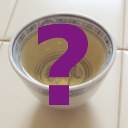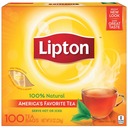Tea: Black Tea
A Black Tea from Lipton Tea
Reviewer: Darqi

✓ 2 teas reviewed
✓ 2 of Black Tea
✓ 2 of Pure Tea (Camellia sinensis)
✓ 1 of Lipton Tea
✓ 1 from ?????
Review of Black Tea
January 21st, 2016
| Aroma | Flavor | Value | Total |
| 8 of 10 | 4 of 5 | 4 of 5 | 80 of 100 |
| Excellent | Good | Good Value |
Generally this tea is a wonderful standby, meaning if you have need a quick pick-me-up and there's nothing else at the 7-11 or fast food joint, then go for it.
After reading about Lipton pesticide use problems in GreenPeace report Trouble Brewing, I don't think I'll be buying Lipton Yellow Label.
Before I read the report, I would say it was in my cupboard. Lipton has a wonderful distinct taste--I once watched an informercial about how the Lipton tea tasters select their final tea blend.
Sure it's industrial grade black orange pekoe, nice and crisp and pairs well with creme and sugar. However it is NOT at all like Chinese red tea. (Black orange pekoe tastes nothing like Jasmine red tea and probably they use different subspecies of shrubs, just as there are many different types of grasses).
Whether I will buy a box for iced tea, maybe. However my digestion system is too sensitive (having taken radiation) to really drink too much of the tea, meaning I will get the runs.
This was attracted my attention to the Trouble Brewing report by GreenPeace in the first place.
Add your own review
Comments:
| Alex Zorach wrote: on January 25th, 2016 |
I find it interesting that you actually like the flavor of this tea, and are avoiding it primarily for pesticide reasons; most people (including myself) tend not to be the hugest fans of its flavor.
There are a lot of great options though if you want to buy tea that addresses concerns about pesticides and production method.
There are organic-certified teas, but I tend to think that buying high-quality loose-leaf tea is probably more important in terms of health and environmental impact, than organic certification. There have been some cases of pesticides detected in organic-labeled tea, but perhaps more importantly, most of the issues with contaminants (whether pesticides, pollutants, or otherwise) seem to arise in low-quality "industrial grade" tea as you call it.
So for instance, I'd rather buy artisan tea directly sourced from a small operation using traditional methods, that doesn't have organic certification, than mass-produced tea with the organic label. In many cases people simply avoid the organic label because of the costly and burdensome recordkeeping requirements, even if they aren't actually using any synthetic pesticides or other synthetic inputs in their agriculture.


